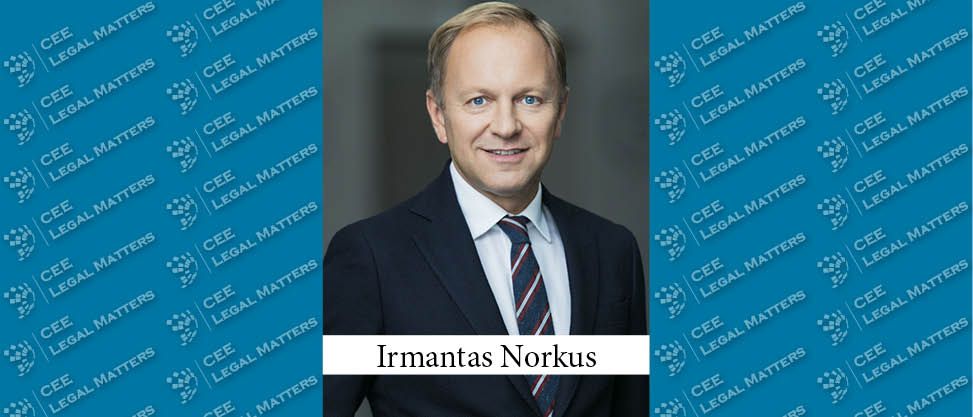“The Lithuanian legal market is really in a good moment,” says Cobalt Managing Partner Irmantas Norkus.
Norkus points to the appearance of two major spin-off firms at the very end of last year, referring to Walless (spinning off from Ellex and then merging with Dominas) and WINT (led by former TGS Baltic Partners Daiva Usinskaite-Filonoviene and Giedrius Danelius and former AAA Law Partner Andrius Iskauskas), which he says has caused “much speculation and discussion.” He describes the attempt by the new firms to compete directly with the traditional major four firms atop the market (Cobalt, Sorainen, TGS Baltic, and Ellex), as “benchmark cases for us, to see whether it’s possible to establish a new venture after being part of large law firms for a long time.” And according to him, early reports seem to suggest there’s room for all. "It seems like they’re doing well,” he says of the new firms, “and although we don’t see them much on transactions yet, they’re active on marketing, and reports are that their initial financial results are better than expected.”
In addition, he says, “there could be other splits in smaller firms, partners leaving, lateral partner hires, so these are good times — people leaving easier, because they have higher expectations of their future.” In his opinion, both phenomena — successful spin-offs and the increasing willingness of lawyers to leave bad situations for better ones — represent “a good sign for clients and the market — it means more competition.”
And it appears the increase in the number of competitors reflects a rising economic tide lifting all boats more than smaller slices of the pie for everybody. Norkus reports that Cobalt's Lithuanian office is “busy with work, and we continue to recruit lawyers.” According to him, “we’re growing by 10% in all Baltic markets.”
Indeed, Norkus points to 3-4% GDP growth in all three Baltic states, with “interest from larger international investors, such as Blackstone and Providence, in the region.” In his opinion, “the future looks bright; firms are investing, and many of them relocating to new premises — another sign of success and expansion.”
Norkus doesn’t believe the good times will end next year or year after. He suggests that the concerns many lawyers express about a potential recession around the corner reflect a natural reaction to good times — a certainty that they can’t last, and that every bubble is just about to burst. "You know this feeling when you’re doing well,” he says. “You start to be cautious. But I do not see any immediate changes or slow-down. The Federal Reserve Bank and European Central Bank are thinking about measures to keep the economies growing.” According to him, "I understand what others are saying, but this time could be completely different. The Central Banks are ready to act. So my hope is that this will continue at least through next year.” Still, he’s quick to concede that “of course nobody knows what will happen.”
Finally, Norkus turns to the increasing attempts by the Lithuanian government to weaken the attorney-client privilege. He says, “we had a new unpleasant regulatory change recently — an amendment to the Law on Tax Administration that imposed a duty on those professional service providers who advise clients on cross-border tax arrangements and tax planning to inform the national tax authorities if their recommendations can be qualified as 'aggressive tax planning.’” He points out that “this means that advocates may be required to inform the tax administration of the kind of advice they’re giving. This is in our view a professional secret.” He says initial attempts to push back were unsuccessful. "The bar tried to submit our position, but it was ignored, with the law making no exceptions.” He reports that, "we are now figuring out and consulting with the Lithuanian bar what our options are so that our privilege is maintained, and that our right/duty to keep professional secrets is protected.”
This is part of an unfortunate trend, Norkus reports. "At the end of last year we had new guidance from the Lithuanian Bar about anti-money-laundering measures to be applied by lawyers.” He says, “the general point is that regulation is increasing and we have more rules about AML, and tax planning, and data protection. The profession is becoming more regulated.” He says this is ultimately unacceptable. "Our role is to ensure justice in society, so the balance between privileges and duties of an advocate should be maintained."


















